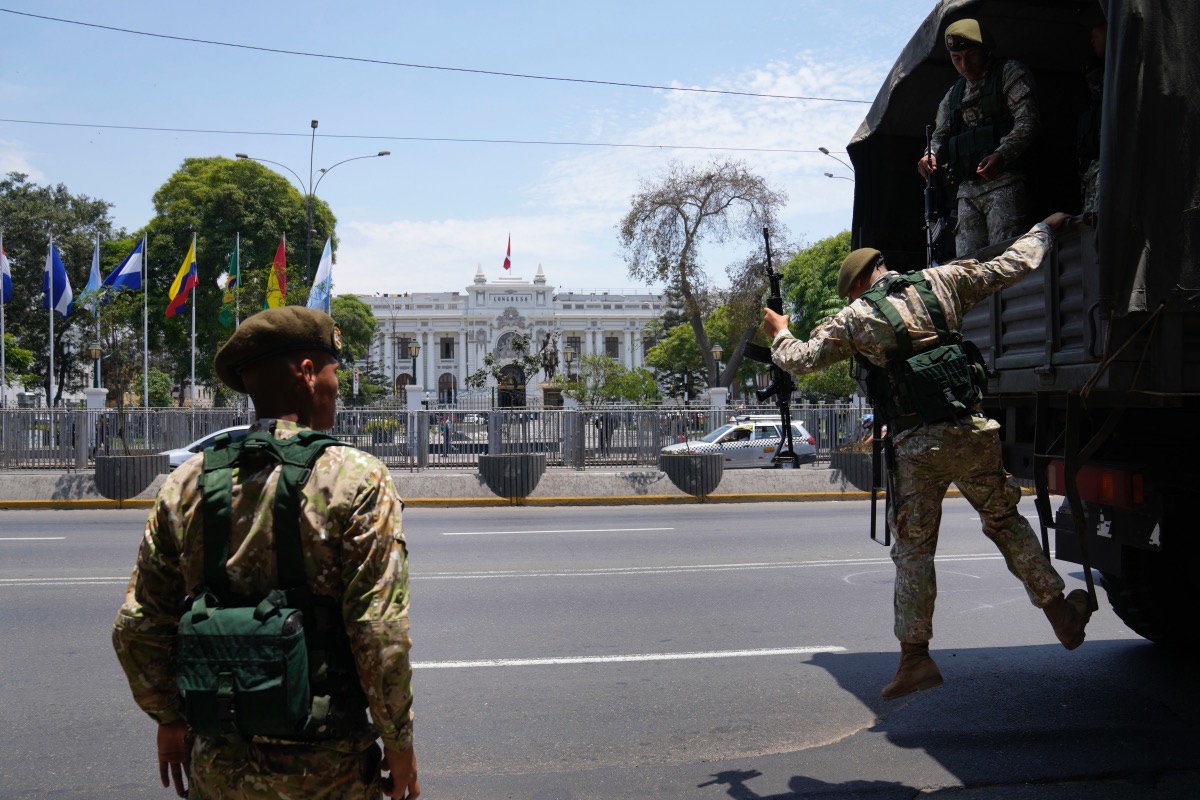

Soldiers get off a truck outside Congress in Lima, Peru, Monday, January 30, 2023. Peru is amid political turmoil since former President Pedro Castillo was impeached and arrested for trying to dissolve Congress and succeeded by his Vice President Dina Boluarte, sparking protests. (AP Photo/Martin Mejia)
By FRANKLIN BRICEÑO, Associated Press
LIMA, Peru (AP) — Pressed by Peru’s embattled president to take action in response to weeks of deadly protests, Congress narrowly agreed on Monday to reconsider a proposal to move the 2026 national elections up to this October.
Lawmakers approved the reconsideration with 66 votes in favor, the bare minimum required in the 130-member assembly, and well short of the two-thirds needed for final approval of earlier elections without a popular referendum.
Lawmakers rejected a similar proposal on Friday, one that would have a new president and Congress take over on January 1, 2024.
If earlier elections are approved, it would be would be the first concrete step to answer the demands of protesters, who lack allies among the lawmakers. They’ve been taking to the streets for weeks, demanding the president’s removal and the dissolution of Congress.
President Dina Boluarte has become the main target of demonstrators, whose clashes with police have led to the deaths of 58 people, including one police officer. She was vice president until lawmakers finally succeeded in impeaching President Pedro Castillo, who was arrested after ordering the dissolution of Congress on December 7.
Boluarte has pushed for earlier elections even as she’s dismissed the demonstrators as extremists seeking to foment chaos and take power. Then, over the weekend, the first protester died in the capital of Lima, raising still more pressure for a response.
Boluarte threatened on Sunday that if lawmakers did not agree on a mechanism that would move elections forward, her office would send a measure to Congress that would include a “total reform” of the Constitution.
“Members of Congress, you must understand your historic responsibility. You have the opportunity tomorrow to win the trust of the country, answering the long-awaited demand from the Peruvian people,” Boluarte said. “We must tell all of Peru, with the highest of responsibility: We’re all leaving.”
Should she push for constitutional reform, she lacks the votes she’d need in Congress to do her bidding. Lawmakers could simply ignore her.
One thing she could do unilaterally, however, is resign. That would automatically trigger earlier elections, but how quickly they would come is a matter of debate. Some say it could take at least a year to fulfill all the legal requirements, meaning a vote likely wouldn’t take place before 2024.


